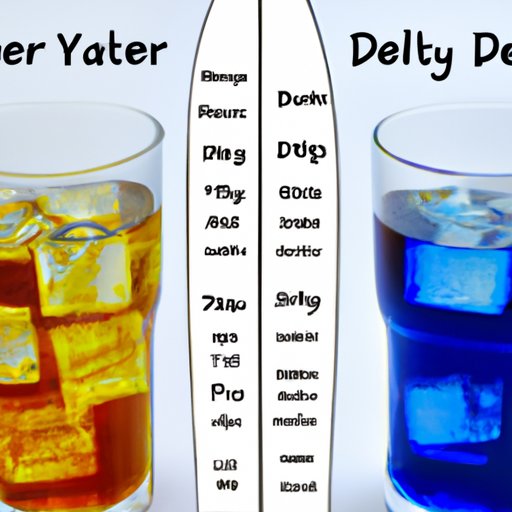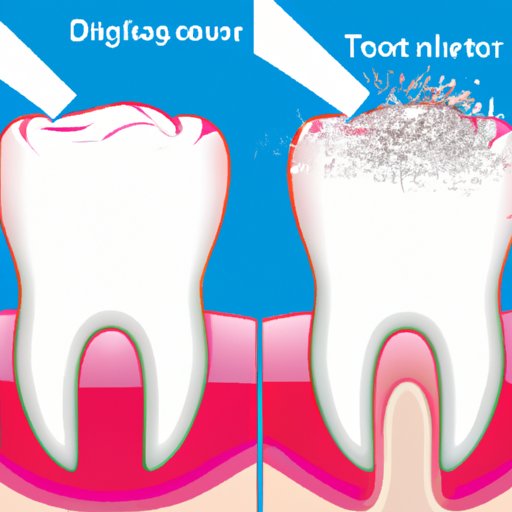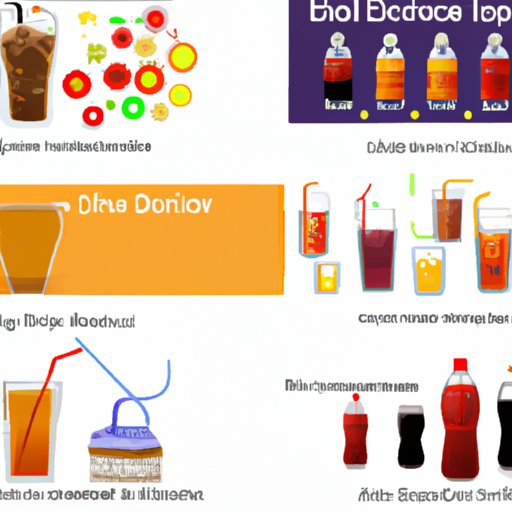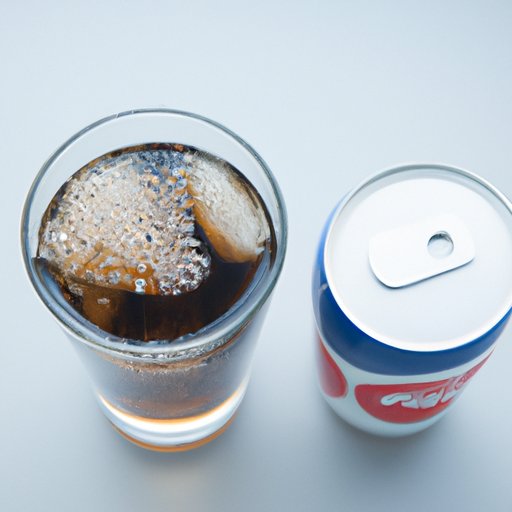Introduction
Carbonated drinks, also known as soda or fizzy drinks, are beverages that contain dissolved carbon dioxide gas. This gas gives them their signature bubbly texture and taste. Carbonated drinks are widely popular around the world and come in a variety of flavors and forms. While they may be refreshing and tasty, there is growing concern about the potential health risks associated with their consumption.

The Relationship Between Carbonated Drinks and Weight Gain
One major concern about carbonated drinks is their potential to contribute to weight gain. A study published in the journal Obesity found that “daily consumption of one or more servings of sugar-sweetened beverages was associated with a 26% increased risk of obesity.” The high sugar content in many carbonated drinks is thought to be one of the primary contributors to this risk. Furthermore, the caffeine in some carbonated drinks may also stimulate appetite, leading to further weight gain.
To reduce the risk of weight gain from consuming carbonated drinks, it is important to limit your intake and opt for lower-sugar alternatives when possible. Additionally, avoiding large portion sizes can also help to reduce caloric intake. Drinking plenty of water and engaging in physical activity are also important strategies for maintaining a healthy body weight.

The Impact of Carbonation on Teeth Enamel
Another potential health risk associated with carbonated drinks is the impact on teeth enamel. According to a study published in the Journal of Dentistry, “carbonated beverages are acidic and have the potential to cause dental erosion.” The acidity of carbonated drinks can erode tooth enamel and lead to sensitivity, discoloration, and cavities. Furthermore, the sugar content in many carbonated drinks can also increase the risk of developing dental caries.
To reduce the risk of enamel erosion from carbonated drinks, it is important to limit your intake and opt for sugar-free alternatives when possible. Additionally, drinking plenty of water and brushing your teeth after consuming carbonated drinks can help to reduce the risk of enamel damage.
The Link Between Carbonated Drinks and Kidney Stones
Studies have also suggested a link between carbonated drinks and kidney stones. According to a study published in the American Journal of Clinical Nutrition, “drinking soda has been linked to a higher risk of developing kidney stones.” The phosphoric acid in carbonated drinks is thought to be one of the primary contributors to this risk. Furthermore, the high sugar content in many carbonated drinks may also increase the risk of developing kidney stones.
To reduce the risk of developing kidney stones from consuming carbonated drinks, it is important to limit your intake and opt for low-sugar alternatives when possible. Additionally, staying hydrated by drinking plenty of water can help to reduce the risk of kidney stone formation.
Understanding the Role of Sugar in Carbonated Drinks
The sugar content in carbonated drinks is another major concern for health professionals. According to a study published in the journal Nutrients, “high levels of sugar consumption can lead to an increased risk of obesity, diabetes, and cardiovascular disease.” Furthermore, research has suggested that the sugar content in many carbonated drinks is significantly higher than what is recommended by health organizations.
To reduce sugar consumption from carbonated drinks, it is important to limit your intake and opt for low-sugar alternatives when possible. Additionally, reading labels carefully and avoiding large portion sizes can also help to reduce sugar intake.

The Effects of Carbonated Drinks on Digestive Health
Finally, carbonated drinks may also have a negative effect on digestive health. According to a study published in the journal Gastroenterology Research and Practice, “carbonated beverages can cause bloating and discomfort due to the production of gas.” Furthermore, the high sugar content in many carbonated drinks may also negatively affect gut bacteria, leading to further digestive issues.
To improve digestive health when consuming carbonated drinks, it is important to limit your intake and opt for low-sugar alternatives when possible. Additionally, drinking plenty of water and eating probiotic-rich foods can also help to reduce digestive symptoms.
Analyzing the Nutritional Value of Carbonated Beverages
It is also important to consider the nutritional value of carbonated drinks. Many carbonated drinks are loaded with added sugars, artificial colors and flavors, and other unhealthy ingredients. While some carbonated drinks may contain vitamins and minerals, it is important to read labels carefully and opt for healthier alternatives when possible.
When selecting carbonated drinks, it is important to look for options that are low in sugar and free of artificial ingredients. Additionally, opting for unsweetened versions of carbonated drinks and adding fresh fruit or herbs can also help to make them healthier.
Conclusion
In conclusion, there are several health risks associated with consuming carbonated drinks. They can lead to weight gain, enamel erosion, kidney stones, and negative impacts on digestive health. To reduce the health risks associated with consuming carbonated drinks, it is important to limit your intake and opt for low-sugar alternatives when possible. Additionally, reading labels carefully, staying hydrated, and eating probiotic-rich foods can also help to reduce the health risks associated with consuming carbonated drinks.
(Note: Is this article not meeting your expectations? Do you have knowledge or insights to share? Unlock new opportunities and expand your reach by joining our authors team. Click Registration to join us and share your expertise with our readers.)
